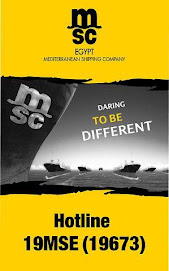By Laila Afifi
Special to The 83rd
As I sit in the TV room with my family, friends, and our friends’ families, I await the prayer. ‘Ahh… my stomach is growling and my head is throbbing.’ This is not just any other prayer; it is the signal to break my fast. The room is filled with loud noises, everyone talking to someone else in the loudest noise possible. My mother is running around the house trying to get everything ready for the iftar. ‘Please let the prayer start.’ Finally, I hear the prayer. We all get up to eat, finally.
It is Ramadan, the ninth month of the Islamic calendar, the month the Qur’an was revealed to the Prophet. The holiest and most venerated month of the year; prayers, fasting, and charity are especially stressed during this month. Of course, ask any Muslim about Ramadan and the first thing that pops to mind is fasting.
But why do we fast? Why do we deny ourselves food and water, even if we are thirsty? I thought everyone knew the answer to that. The fasting is intended to be an act of deep worship in which Muslims raise their level of closeness to God.
When properly observed, the fast allows the mind to completely get rid of everything worldly, induce a feeling of peace and serenity, and allow one to practice self-discipline, sacrifice, as well as sympathy for the less fortunate.
For many, Ramadan is a chance to redeem themselves and to focus on their religious beliefs. For others, it’s a time to gather around with family and friends, and to some it has evolved into a social tradition; a social tradition that revolves around the opinion of their parents, family, and society.
People have lost sight of the true meaning of Ramadan. Ramadan is more than just the huge iftars, more than the Ramadan tournament, and more than the fasting from food.
It is a spiritual month, for prayer and worship; it is the fasting of the mind, the renewing of faith. Ramadan has been taken out of its context and turned into a social event of gatherings, festivals, and hypocrisy.
Where are the humbleness, the moderation, the tolerance, and the spirituality that should exist? Where is the peace and serenity that we should feel? Has our society gone so far away from the true purpose of Ramadan, we cannot enjoy the simple things like our family, our privileges, and our blessings? Can no one feel thankful that they have an iftar awaiting them at home when others cannot afford a loaf of bread? When we are aggravated because of traffic, can we not think of those who stand for hours trying to get the microbus home?
Ramadan has not just evolved into a scheme of events, but has actually changed from the peace and transparency it was into hypocrisy. Why are people fasting? Is it because they are afraid people will judge them? Or is it because they have grown accustomed to fasting during Ramadan?
I ask you, as I ask myself, do you know why you are fasting?
Ramadan Kareem!
Wednesday, October 17, 2007
A State of Mind
Posted by
ISSUE NO. 4 MARCH 2008
at
5:45 PM
![]()
Labels: Opinion/Editorial
Subscribe to:
Post Comments (Atom)



No comments:
Post a Comment